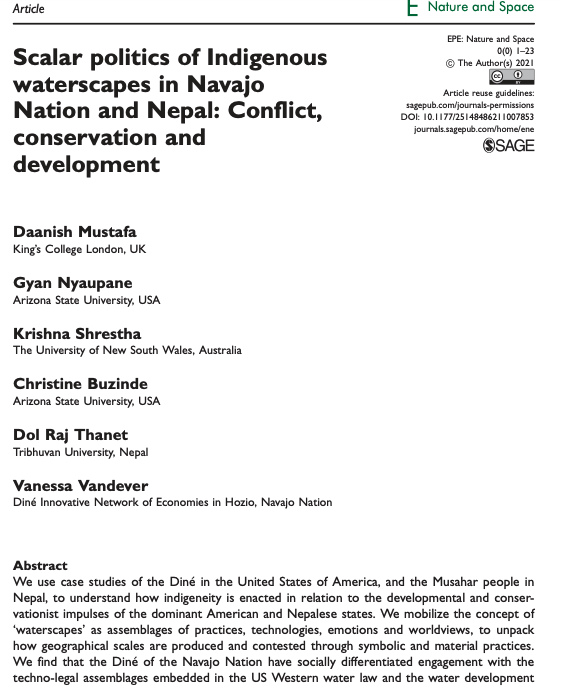Prof. Daanish Mustafa led new research exploring indigenous waterscapes in Nepal and the US.

Background
Critical geographers have long been interested in understanding how geographical scales are produced and contested through both material and symbolic practices.
To continue this tradition and further explore power relations present within these interactions, Mustafa and his team studied indigeneity and how it’s enacted in regard to the developmental and conservationist impulses of dominant state ontologies.
Their case studies focused on waterscapes (i.e., assemblages of practices, technologies, emotions and worldviews) of the Diné in the United States of America and the Musahar people in Nepal.
Findings
Mustafa and his team discovered that regardless of social differentiation and exclusion by their dominant states on the international and national scale, the Diné and Musahar people were regardless able to destabilize dominant state ontologies within their local waterscapes.
These findings suggest that across vast distances of history, geography and wealth, indigeneity does not just get repressed or impeded by the dominant state but is constantly reimagined and re-enacted in creative ways by the Indigenous People themselves.
Learn More
Read the insightful journal article here. The article is accessible to all King’s students and staff, so be sure to share it with everyone!
